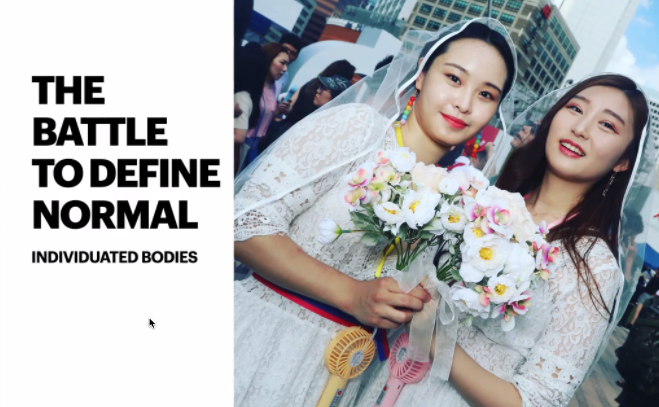Michael Hurt discussed Korean LGBTQ history
May 19, 2021
The fight for LGBTQ rights has been a highly discussed topic across the globe for the past few years and continues to gain traction with each passing year. But even with all the progress, there is a continued battle between the younger generation and the older generation. On May 14, over 40 participants joined the webinar of Michael Hurt’s talk on “The Battle for Normal and the Queering of Korea.”
Hurt is a photographer and professor living in Seoul, South Korea. He uses his photographs to capture the digital subculture of South Korea, as well as the political economy of “the pay model on Korean Instagram,” according to Hurt.
In June 2020, Hurt said he documented a Black Lives Matter solidarity march and other Koreans wondered why they should care about the BLM movement. Hurt said he came to the conclusion, after covering many political and LGBTQ movements, that it is a heavy battle for the “soul of the country” in a young generation versus the old generation.
“What I think is actually happening here is a battle between two very different notions of what it means to be a member of the Korean national community and a member of global society,” Hurt said.
Participants said they were curious how other political movements, similar to BLM, related to queer movements and LGBTQ communities in Korea.
The link is not direct but the idea behind the movements are similar and were created by bigger cultural shifts, Hurt said. An example Hurt provided was Heezy Yang. Heezy Yang helped create these big movements, such as the Drag Parade, the LGBTQ movement and political movements.
During a few of the Queer Culture Festivals and other gay pride events, Koreans who are against LGBTQ held an anti-protest in what Hurt called “The Performance of Fear (2015).” In this performance, young girls were dressed and performed in a way to show racial and cultural purity, old Christian values and “good old fashioned girls,” according to Hurt.
It was interesting to see a generation gap between the older and younger generation and how the young generation suffers because of the older generations values placed on sexuality, according to the participants.
“This is not just a generational riff or a gap, this is about completely different Koreas co-existing on top of one another,” Hurt said. “My dramatic way of expressing this is that one has to die, one will live.”
Hurt said there has been progress for LGBTQ rights in Korea but there are still high levels of racism and homophobia, mainly from older people whose minds are already made up and have no intention of changing them.



